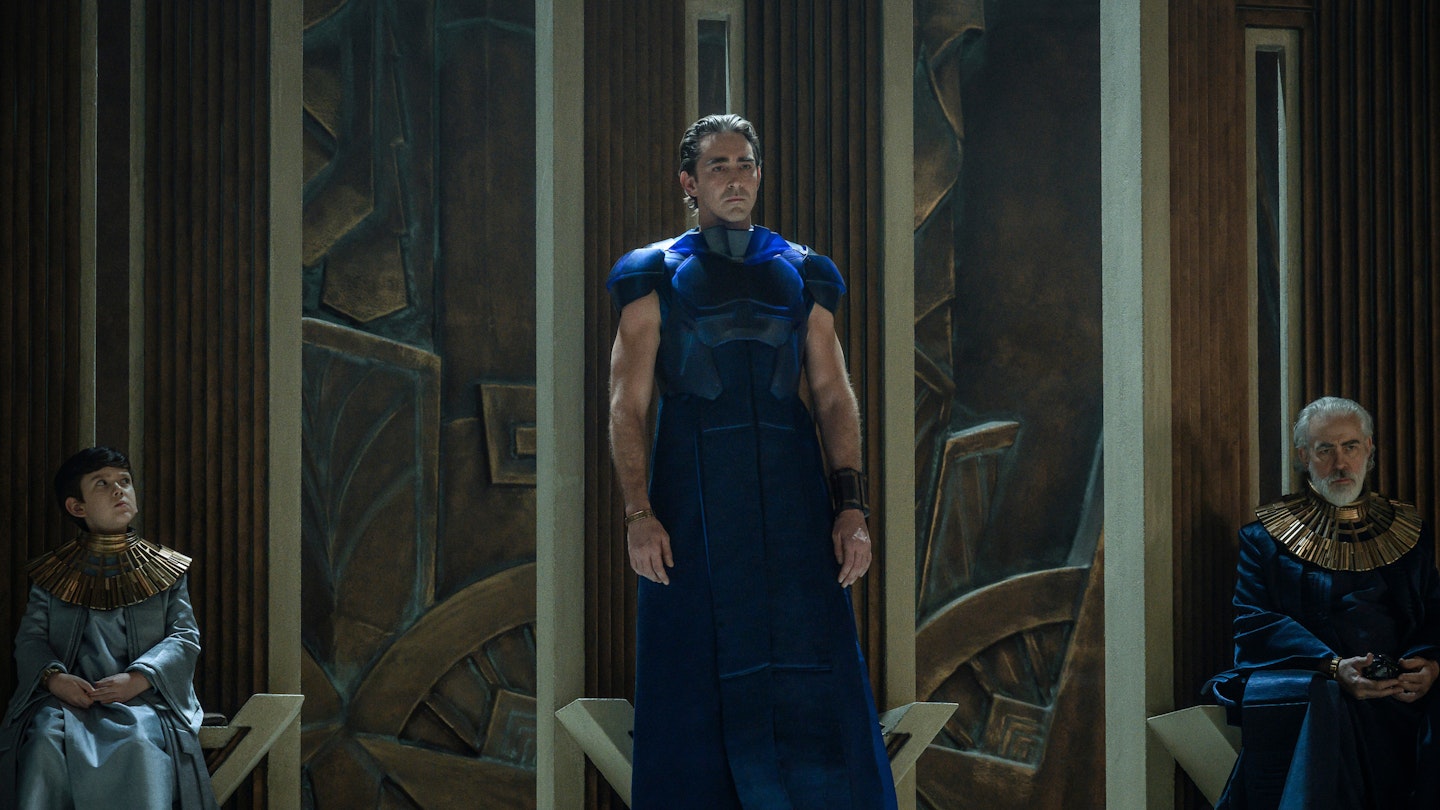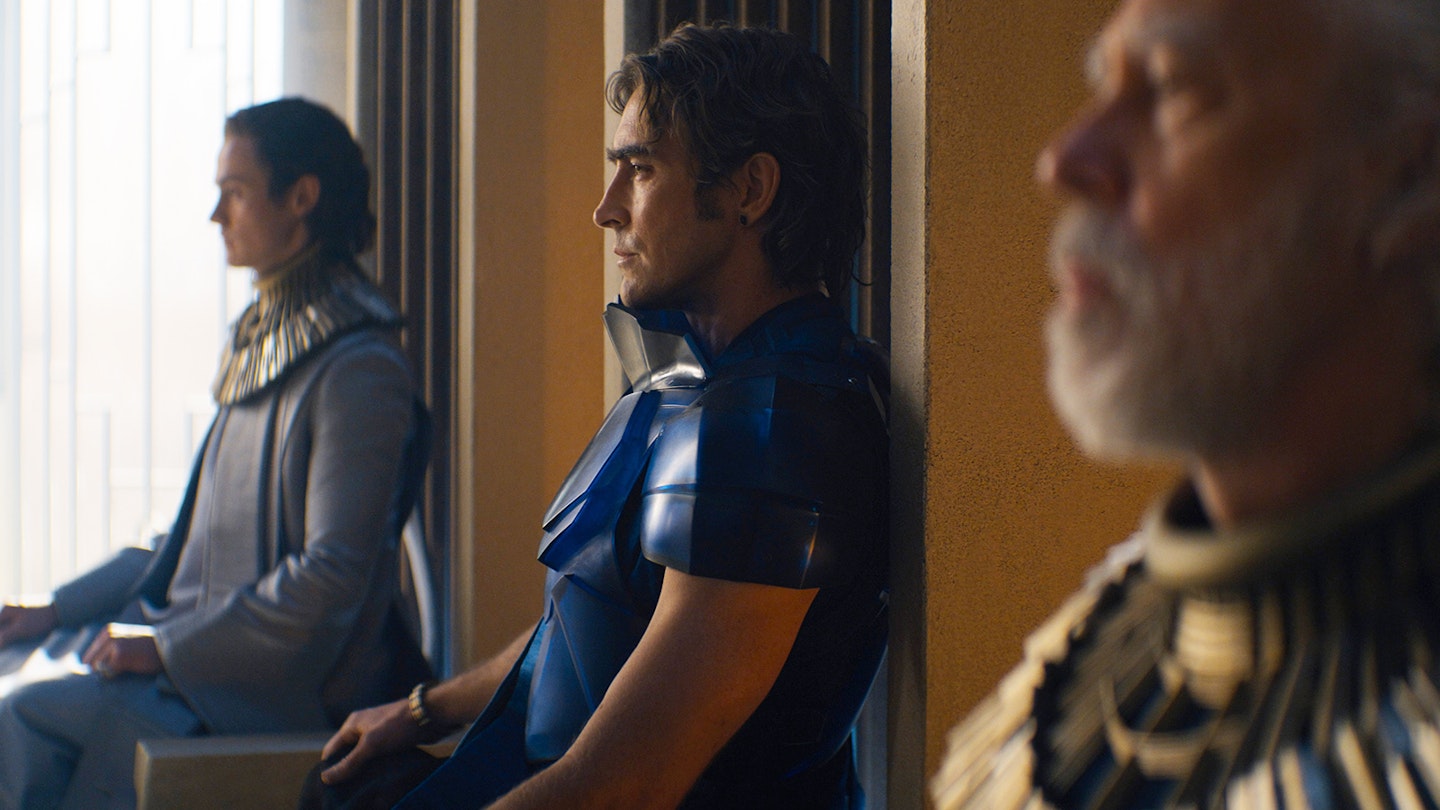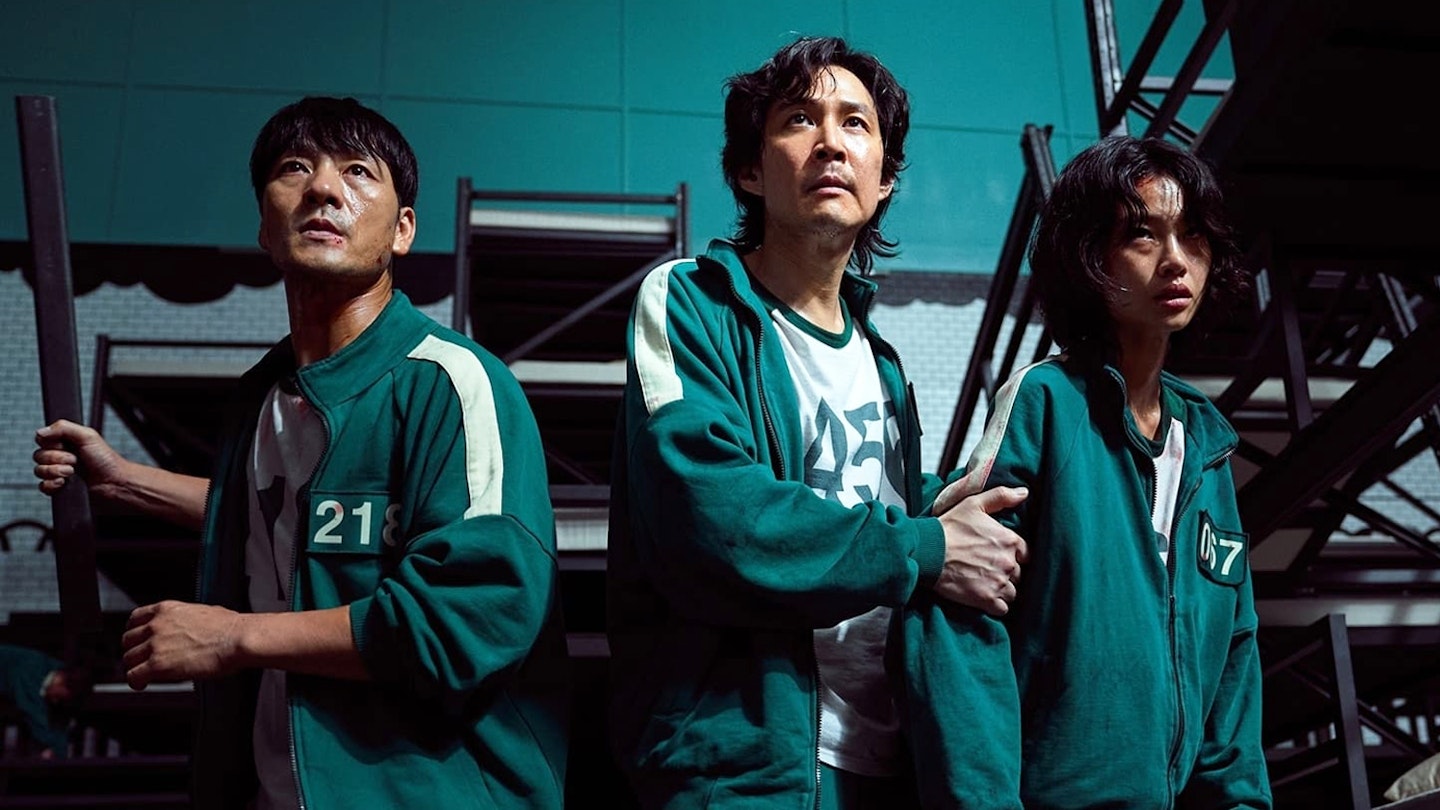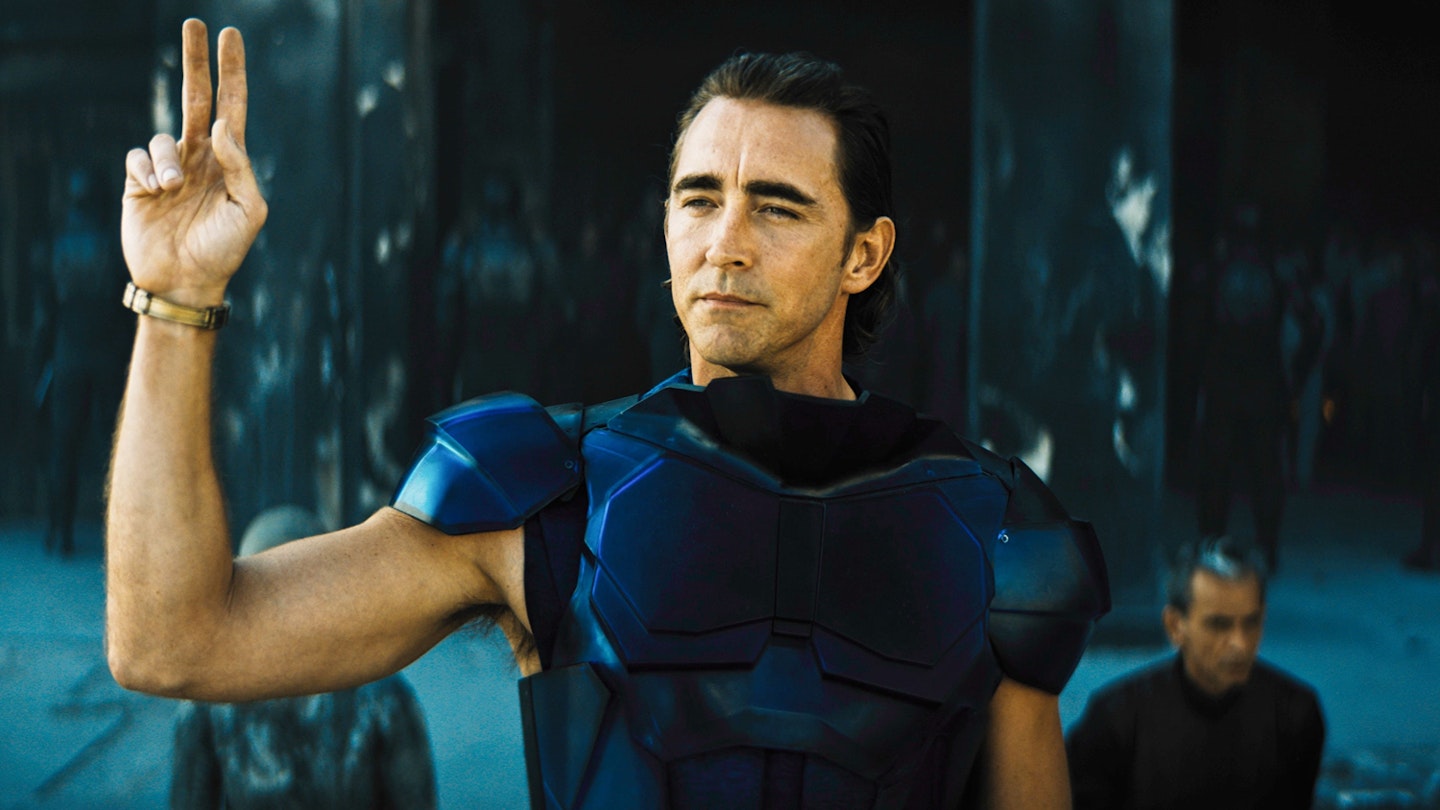Streaming on: Apple TV+
Episodes seen: 10/10
Adaptations of seminal sci-fi tomes, like buses, come along all at once. Not only does this autumn welcome Denis Villeneuve’s take on Frank Herbert’s Dune, but Isaac Asimov’s Foundation — a series of books often named as one of Dune’s major influences — makes its debut on the small screen, courtesy of David S. Goyer. And while Dune has often been described as unwelcoming, Foundation makes Frank Herbert’s doorstop read like a Dan Brown novel.
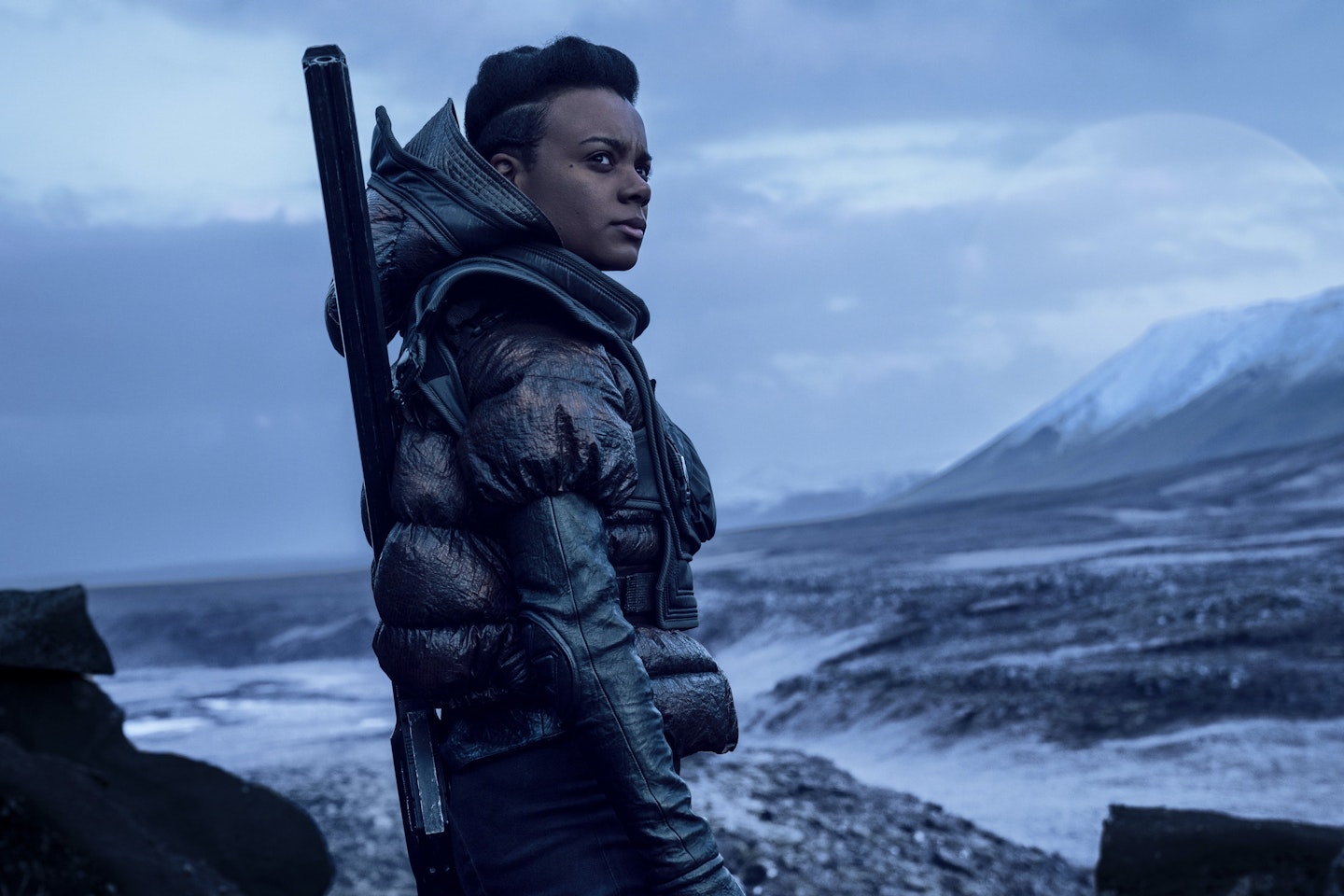
First published back in the ’40s as a collection of short stories, Foundation is the millennium-long saga of an empire’s decay, after numerically gifted but tact-free academic Hari Seldon shares his prediction (based on a mathematical formula dubbed ‘psychohistory’) that the empire is about to implode. The fall is inevitable; what’s up for grabs, he tells the furious emperor, is whether the lawless chaos that follows will last a mere thousand years or 30,000 — a conversation that goes about as well as Chris Whitty’s first briefing with Boris Johnson in early 2020.
Foundation may be the most lavish show on television
The fact that Asimov’s story stretches across a thousand years, is anthological in structure, and features a constantly refreshing cast of (thinly drawn) characters doesn’t instantly lend it to the screen, but Goyer, who pitched it to Apple as a 1,000-year game of intergalactic chess, has gone out of his way to give Asimov’s cold and emotionless masterwork a more human side. He does this by focusing on a core group of characters and using a variety of devices — both narrative and structural — to keep them on screen far beyond their mortal spans.
The central players consist of Seldon (Jared Harris), heretical maths prodigy Gaal Dornick (Lou Llobell), and mysterious warden Salvor Hardin (Leah Harvey). Most compelling, though, are Cassian Bilton, Lee Pace and Terrence Mann as the Emperor himself. The product of genetic cloning, ‘Empire’ is split into three personas: Brother Dawn, a callow youth; Brother Day, the de facto ruler; and Brother Dusk, an elderly adviser — the former gradually becoming the latter in an endless cycle that allows the Emperor, in the ultimate act of narcissism, to be both his own father and son simultaneously. Bedecked in beetle-blue armour, Pace brings both weight and humanity to the waning imperium, providing a perfect, volatile counterpart to Harris’ stoically practical Seldon, while placing a consistent face on the empire at the story’s heart.
With a budget that would put most blockbusters to shame, Foundation may be the most lavish show on television, combining jaw-dropping production design with stunning location shoots in Iceland, Berlin and the Canary Islands that give the disparate worlds a tactile realism green-screen alone would not provide. But while it delivers in both scope and spectacle, Foundation is not for the faint-hearted. This is a slice of rock-hard sci-fi that tickles the intellect with concepts both philosophical and profound; one that routinely hops back and forth through decades and sometimes centuries. Goyer’s vision for Foundation is an eight-series adaptation, and the prospect of an 80-hour, epoch-spanning yarn won’t be to everyone’s tastes. But for those willing to take it on, Foundation’s debut season is a breathtakingly bold undertaking that will dazzle just as much as it confounds, and lays its own foundation for what may prove the most ambitious television yet.
